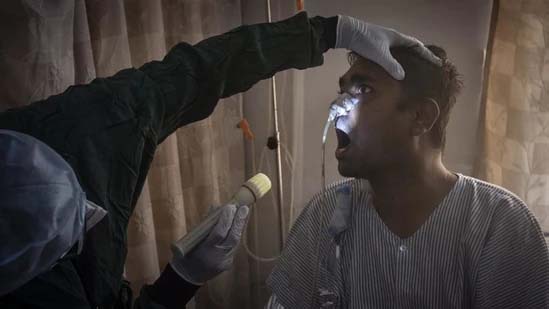Oman announced on Tuesday that its doctors have detected a potentially fatal fungal infection afflicting some coronavirus patients, the first such known cases on the Arabian Peninsula as the sultanate faces a surge in Covid-19 infections that has swamped its hospitals.
The country’s Health Ministry reported that three Covid-19 patients in Oman have become infected with mucormycosis, a life-threatening condition commonly known as “black fungus,” which has spread quickly among virus patients in hard-hit India.
Although relatively rare, the disease has raised alarm among authorities that its sudden increase could complicate efforts to combat Covid-19. It wasn’t immediately clear what condition the three patients were in.
Oman health officials warned earlier this week that the sultanate faces an acute shortage of beds amid the spread of highly transmissible virus variants, a lagging vaccine rollout and relaxed movement restrictions.
The fungal condition became a growing cause of concern during India’s devastating coronavirus surge. Other countries, including Egypt, have reported scattered cases in recent months as infections spiked. Black fungus existed in India before the virus wave, but it stoked fears as it took hold in thousands of infected or recently recovered Covid-19 patients.
Mucormycosis is caused by exposure to mucor mold, which is commonly found in soil, air and even in the nose and mucus of humans. It spreads through the respiratory tract and erodes facial structures. Sometimes, doctors have to surgically remove the eye to stop the infection from reaching the brain.
The fungal infection preys on patients with weakened immune systems and underlying conditions, particularly diabetes, as well as overuse of certain over-the-counter coronavirus medication, like steroids. Uncontrolled blood sugar can put immunocompromised people at a higher risk of contracting the disease.


